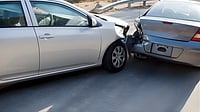Making Smart Moves: Key Factors for Car Insurance & Pre-owned Vehicles
motor
The shift to electric vehicles (EVs) is gaining momentum in South Africa. If you're a pragmatic driver and have been looking at different types of EVs, you might have already wondered if Car Insurance for EVs is different. That is why the team at Auto&General Insurance has put together this guide, offering clear answers that are rooted in local reality. Because when a car runs on batteries, familiar responsibilities are joined by new considerations.
Electric vehicles in South Africa: what you should know
While EV adoption has been relatively slow in South Africa when compared to international markets, a clear upward trajectory is emerging. And because EVs are not just a passing trend, having some knowledge of the local market can help you make informed decisions. Regardless of whether you're already thinking about buying an EV now or only planning to make the shift later.
In 2023, 929 fully battery‑electric vehicles (BEVs) were sold, representing an 85% increase from 2022’s 502 units, while plug-in hybrids (PHEVs) climbed to 333 units. The broader category known as New Energy Vehicles (NEVs), which includes hybrids, plug-in hybrids, and pure EVs, reached 7,746 units in 2023. Q1 2024 was up 83% year-on-year, with 3,042 sales reported 1.
The infrastructure necessary for EVs is expanding in South Africa, but it is still uneven. There are more than 500 public charge points across the country 2, with many located in major shopping centres and dealerships. While most public charging providers continue to expand their coverage, rural coverage is still limited. Only one provider is focusing on rural corridor installations.
Access to charging stations is not the only barrier, with the higher cost of EVs also influencing adoption. Of the nearly 515,712 new cars sold in 2024, only 0.24% were BEVs 3. The government still does not offer any substantial incentives for shifting to EVs.
For now, if you are thinking of making your next vehicle purchase an EV, consider how this will affect your driving habits and Car Insurance in South Africa.
7 key differences between Car Insurance for combustion engines vs EVs—and why it matters
Insuring an electric vehicle isn’t the same as insuring a petrol or diesel car. While the core principles are similar, the components, risks, and even repair processes differ significantly.
1. Higher car values mean higher premiums
EVs generally command higher purchase prices (from R900 000 and up), so repair or replacement costs are higher too. That means you should expect comprehensive premiums to be steeper compared to similar petrol/diesel cars.
2. Your battery isn’t always automatically covered
The battery is one of the most expensive parts of an EV, and because of that, standard electric Vehicle Insurance may exclude damage or degradation. Imagine noticing your driving range has dropped to under 60% after just a year. A dealership identifies accelerated battery degradation as the cause. Without battery cover, replacing it could cost as much as 40% of the car’s original value.
3. EV repairs need trained technicians and cost more
EV repairs require qualified technicians and certified parts. And this comes at a premium. After a minor collision, replacing an EV’s electric motor or high-voltage components could easily cost multiples more than mechanical repairs on combustion engines.
4. Your charger and cables may not be insured
Look for electric Vehicle Insurance that includes charging cables and the charging point. If an electrical fault caused a small fire that damaged the cable and charge point, replacing both could cost more than R10,000.
5. Safety features don’t always mean lower premiums
EVs often benefit from advanced safety features such as regenerative braking, low centre-of-gravity, and multiple crash sensors. These can lead to lower accident rates and reduced premiums over time. However, insurers balance this against battery-fire risks and even pedestrian risks since EVs are so quiet.
6. Low maintenance doesn’t mean low risk
EVs have fewer moving parts and don’t require oil changes, but brake systems wear differently due to regenerative braking. Not forgetting the very high cost of battery replacements. The potential for maintenance claims is lower, but the higher cost of specialised maintenance could still influence Car Insurance premiums.
7. You could qualify for eco-friendly discounts
Some insurers might offer perks for eco-conscious vehicle owners, such as premium discounts or excess reductions. Always ask about this, because missing out on an “eco bonus” could mean paying more than necessary.
Choosing cover that fits your vehicle’s specific needs is important with any Car Insurance in South Africa. But it is especially important with electric vehicles. Overlooking battery protection or relying on policies written for combustion engines might leave you exposed to expensive out-of-pocket repairs. Cover for charging equipment can also prevent added stress and costs if something goes wrong. Once you understand these differences, you'll be able to enjoy the full benefits of EV ownership and avoid unexpected exclusions.
What to keep in mind when insuring your EV
Electric vehicles require more specialised considerations than many first-time EV owners expect. With that in mind, these tips will help you make sure your Car Insurance cover is complete and well-suited to your needs.
-
Choose a policy that’s built for electric vehicles. Always check that your policy explicitly lists EVs, not just internal combustion engine (ICE) vehicles.
-
Make sure your battery is fully insured. Check whether accidental damage and performance degradation are included.
-
Add protection for your home charger and cables. Include tether, cable, and home charger cover, for both accidental damage and theft.
-
Check that your Car Insurance policy will cover EV-certified repairers. Choose an insurer with a network of authorised EV repair centres in South Africa.
-
Confirm you’ll get EV-friendly roadside help. EV breakdowns are different, and the cover needs to include battery-charge rescue and tow-in services equipped for EVs.
-
Ask about OEM battery and charger replacements. Ask if the policy covers delays or higher replacement costs due to limited supply.
-
Balance cost with specialised EV protection. Premiums may be higher due to specialised repairs and the vehicle’s value, but this might be offset by lower operating costs.
-
Ensure tracking and anti-theft measures meet your insurer’s standards. EV-specific trackers and immobiliser systems are often needed for consistent cover.
-
Read the fine print, especially regarding wear and tear. Watch out for exclusions such as battery degradation, charging station damage, and unauthorised repairs.
-
Take advantage of green discounts if they’re offered. Check if your insurer offers rewards for lower emissions.
Get a Car Insurance quote
Protect your electric vehicle the right way. Contact Auto&General Insurance today to receive a tailored Car Insurance quote for your EV. Our team will guide you through all the specifics, including battery cover and charger protection. We’re here to make your EV journey worry‑free and straightforward.
—-----------------------------------------------------------------------------------------------------------------
Sources:
1 The National Association of Automobile Manufacturers of South Africa: https://naamsa.net/south-africas-electric-car-sales-surge/
2 AUTO24: https://auto24.co.za/blog/charging-ahead-a-2025-guide-to-ev-charging-stations-across-south-africa
3 CleanTechnica: https://cleantechnica.com/2025/07/07/can-the-new-wave-of-bev-phev-pickups-boost-ev-sales-in-south-africa/
Disclaimer: The information in this article is provided for informational purposes only and should not be construed as financial, legal, or medical advice.








